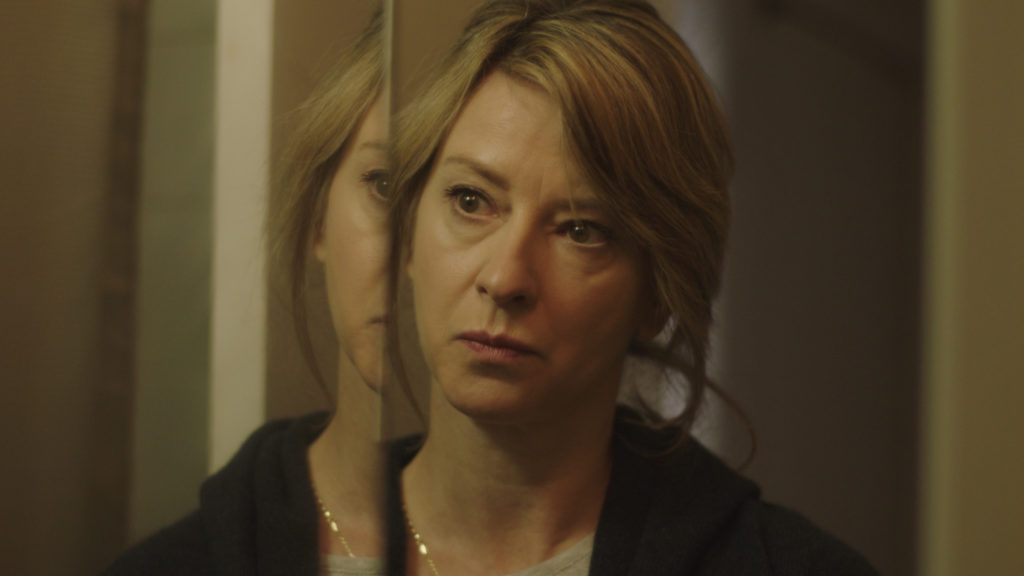Sanja Živković is a writer, director, and film professor. Her work is influenced by having grown up in both Serbia and Canada. She’s directed multiple short films, including “Maria’s Episode,” which won awards at Belgrade Documentary and Short Film Festival and Prvi Kadar Filmski Sarajevo Festival. “Easy Land” is her first feature.
“Easy Land” will premiere at the 2019 Toronto International Film Festival on September 7.
W&H: Describe the film for us in your own words.
SZ: “Easy Land” is an intimate family drama that examines the psychological toll of immigration on two Serbian women as they go about their new lives in Canada. Jasna (Mirjana Joković), a trained architect and mother, wants to make a better life for her daughter, Nina (Nina Kiri), in Toronto, but her mental health worsens when she starts creating the architectural model she calls “Easy Land.”
This causes a problem with her daughter, who wants nothing more then to run from the whole situation, but struggles to leave her mother behind.
W&H: What drew you to this story?
SZ: It was a way of reconciling with my own past as a Serbian immigrant in Canada, which was in some parts similar to what the protagonists go through. On the other hand, I thought up this plot around the model “Easy Land,” as a way to communicate the hopes and expectations of immigrants that can lead to disappointment, and in this case, mental health issues.
W&H: What do you want people to think about when they are leaving the theater?
SZ: The irony of “Easy Land.” Yes, what these characters experience is difficult, but hopefully people will come out feeling like immigration can be what we make of it.
W&H: What was the biggest challenge in making the film?
SZ: Working on a limited budget, while trying to stay true to the vision behind the script, is a challenge that I’m sure many of us have faced. Everyone involved in making “Easy Land” at some point ended up donating either their time or resources so that we could finish the film.
We also had the Canadian winter caving in on us and had to move some scenes from exterior to interior shooting locations and cut others. The whole process was really about having to be very creative to overcome obstacles and working with what we had, what the circumstances allowed, and making an aesthetic out of it.
W&H: How did you get your film funded? Share some insights into how you got the film made.
SZ: The film was funded through two Canadian government-funding agencies, the Talent to Watch Program supported by Telefilm Canada, and the Canada Council for the Arts.
W&H: What inspired you to become a filmmaker?
SZ: I always wanted to act and direct so I turned to theater at a young age, and then started making my own films with a mini-DV camera and friends. A turning point was when a Mexican friend of my mine introduced me to the films of Alfonso Cuarón.
I remember watching “Y Tu Mamá También” and feeling the director’s voice in the work. It made me realize a film can be personal, meaningful, and entertaining at the same time.
W&H: What’s the best and worst advice you’ve received.
SZ: One of my professors would always say failure makes you stronger, while success can corrupt you. Don’t ever think you’ve “made it” just because you’ve received recognition for your work.
I can’t think of any bad advice — maybe because even advice that you don’t like can be turned into something to learn from and grow. Like, if somebody says you should make a more commercial film to please a wider audience, you just realize you can’t please everyone.
W&H: What advice do you have for other female directors?
SZ: I think it would be the same advice that I give my directing students at Toronto Film School — regardless of their gender — and that would be to pursue the topics, themes, and stories that are urgent to them personally. even if they are scared of exposing themselves to something outside of their comfort zone.
For female directors specifically, I think it’s an important time for us to speak out to the world about our experiences, and be brutally honest about them.
W&H: Name your favorite woman-directed film and why.
SZ: It’s hard because there are so many filmmakers that I like and great films made by women. In the last few years I’ve really been inspired by Andrea Arnold’s “Fish Tank” and just Andrea Arnold in general — she has mastered the coming-of-age story from the female point-of -view in a raw, unapologetic, real way. I’m excited to see what she’ll do next!
W&H: What differences have you noticed in the industry since the #MeToo and #TimesUp movements launched?
SZ: I can only speak about the independent industry that I am part of since I haven’t had any TV gigs yet, and in that case, I certainly do see improvement. There has been a significant increase in the support of female-driven stories in my community in Toronto, starting from funding for female filmmakers to programming, such as at the Toronto International Film Festival, with almost 50 percent of their selected films this year being directed by women.







